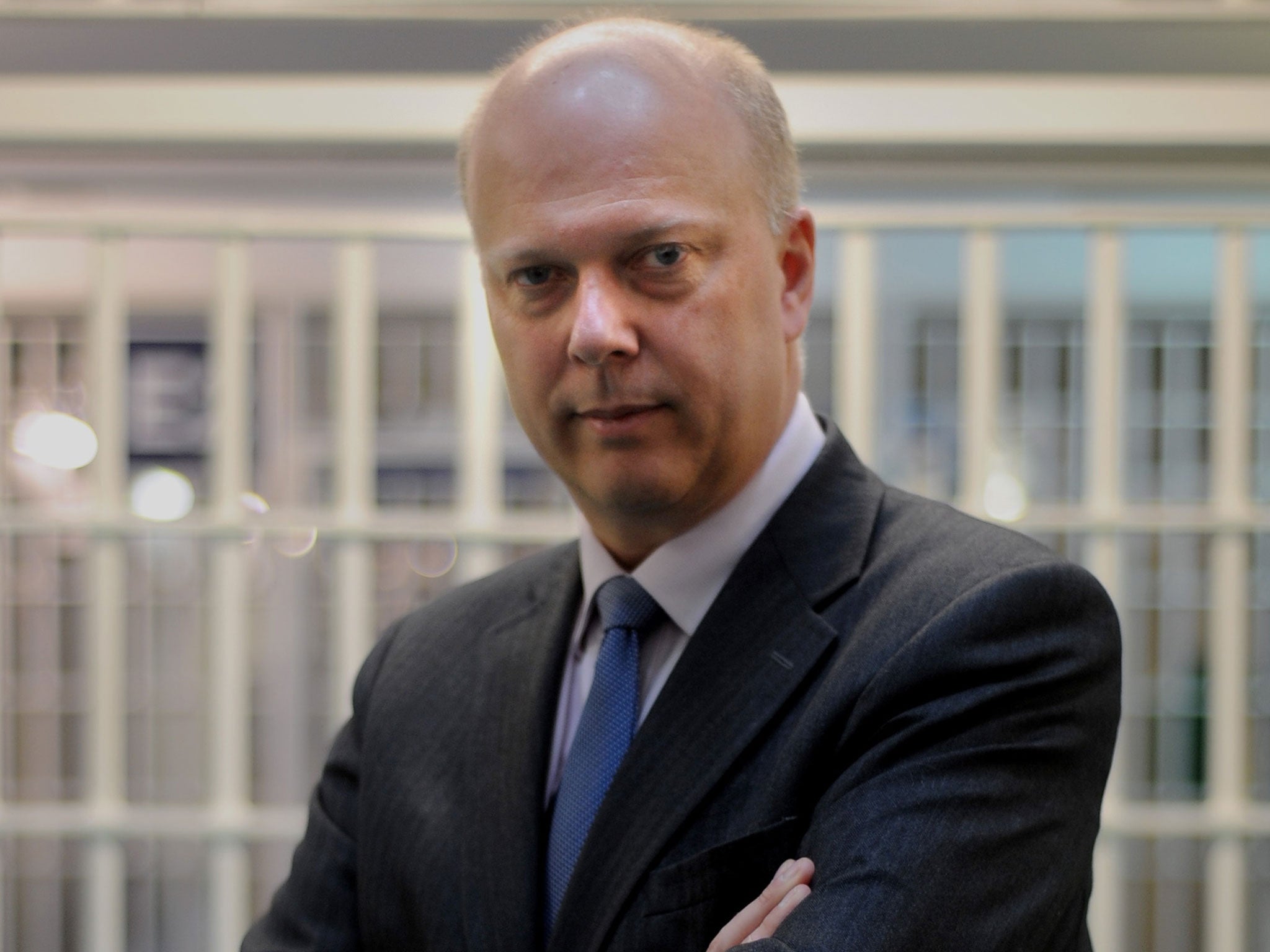Justice Secretary asks for review of Court of Protection's powers
Chris Grayling calls for greater transparency in the dealings of the Court of Protection, which has the power to split up families and send people to jail

Your support helps us to tell the story
From reproductive rights to climate change to Big Tech, The Independent is on the ground when the story is developing. Whether it's investigating the financials of Elon Musk's pro-Trump PAC or producing our latest documentary, 'The A Word', which shines a light on the American women fighting for reproductive rights, we know how important it is to parse out the facts from the messaging.
At such a critical moment in US history, we need reporters on the ground. Your donation allows us to keep sending journalists to speak to both sides of the story.
The Independent is trusted by Americans across the entire political spectrum. And unlike many other quality news outlets, we choose not to lock Americans out of our reporting and analysis with paywalls. We believe quality journalism should be available to everyone, paid for by those who can afford it.
Your support makes all the difference.Draconian rules that give private courts the power to split up families and send people to jail are to face urgent review on the orders of the Justice Secretary.
Chris Grayling has asked one of the country’s most senior judges to revisit the rules covering the Court of Protection, which decides the fate of adults who are judged not to have the mental capacity to make their own decisions. Created in 2007 under Labour’s Mental Capacity Act, the court has sweeping powers to decide the fate of vulnerable people. Unlike almost any other court it is not required to allow the press or members of the public to listen in to their proceedings, and still routinely excludes any observers.
The most notorious Court of Protection case was the long battle that Mark Neary fought to be reunited with his autistic son, Steven, who had been illegally placed in a care home by Hillingdon Council.
The case was able to be reported after The Independent and other newspapers won the first of a series of court judgments that allowed limited press coverage of a small number of Court of Protection hearings.
Last month it emerged that 50-year-old Wanda Maddocks had been sentenced to five months in prison for contempt of court after she had defied a court order by taking her father, John, out of his care home. A judge ruled that she had caused her father, who has dementia, “very considerable grief” and that “it seems only right that she should go to prison.”
The sentence was imposed last September but the court banned any reporting of it until after Ms Maddocks had been released, having spent six weeks in prison. Her father died in January. The case was criticised by the Liberal Democrat MP John Hemming, who has campaigned against secrecy in the courts.
Mr Grayling has written to Sir James Munby, president of the family division of the High Court of England and Wales, urging him to widen a review that he is carrying out into the working of family courts to include courts of protection. Mr Grayling wrote: “As you will be aware, the issue of transparency in the Court of Protection has recently attracted media attention. While we want to ensure that we balance the interests of safeguarding vulnerable adults with those of increasing the transparency of proceedings, I would welcome your views on how we might best achieve this.”
In addition to the work of the Court of Protection in private, there are fears that families are facing long delays because of its growing workload. The court handles 24,450 cases a year, of which some 1,200 involve a full court hearing. They include an increasing number of cases that are literally issues of life or death, because they involve medical decisions that can either prolong or end life. These are usually held in public. The others still take place behind closed doors.
Richard Charlton, chairman of the Mental Health Lawyers Association, said: “The Court of Protection is a difficult area and in general anonymity will be appropriate, but there are important exceptions to this, such as the Neary case.”
Join our commenting forum
Join thought-provoking conversations, follow other Independent readers and see their replies
Comments